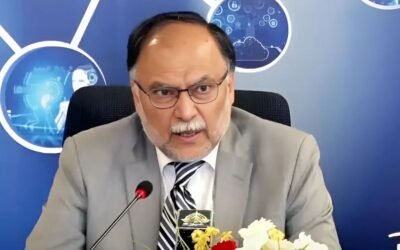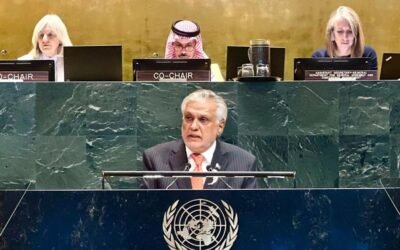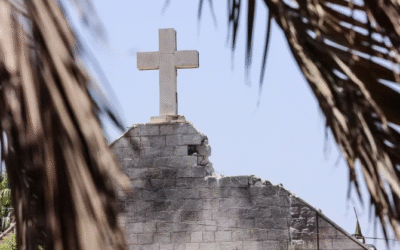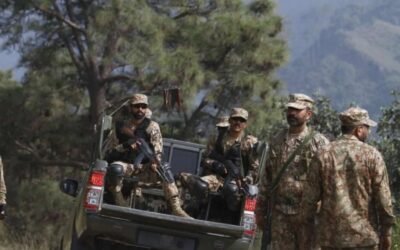In any nation, a handful of days transcend partisan politics, serving as sacred anchors for collective identity. For Pakistan, August 14th is that day—a moment to set aside differences and stand in a unified celebration of its founding. Yet, for a second time in recent weeks, the Pakistan Tehreek-e-Insaf (PTI) has announced its intention to hold political demonstrations on this important national holiday. This decision follows a failed call to protest on August 5th, Youm-e-Istehsal, which was meant to be a day of solidarity with Kashmiris. While the right to protest is a cornerstone of democracy, the repeated use of nationally significant days for partisan political activities raises a more profound question: At what point does political maneuvering begin to actively harm the country’s national fabric?
The core issue at stake is the long-term impact of such actions on societal cohesion. When national holidays become stages for political confrontation, they lose their power as unifying symbols. This phenomenon is not limited to one party; it is a symptom of a deeper political polarization that has divided society into “mutually mistrustful ‘us & them’ groups.” As various studies on the topic have noted, this intense political division, fueled by a zero-sum game mentality, threatens national integration and can be exploited by elements seeking to destabilize the country. Instead of fostering a sense of shared destiny, these actions create a new dimension of division along political lines, where party affiliation, rather than national identity, becomes the primary determinant of belonging.
You May Like To Read: Efficient Governance vs. Citizen Rights in the Digital Age
The May 9th Events
The most potent and troubling example of this crisis of political confrontation was the series of violent events on May 9th. Following the arrest of Imran Khan, widespread protests erupted, with supporters targeting key military installations and monuments. This was a watershed moment in Pakistan’s history, as it represented an unprecedented breakdown of the civil-military relationship and a direct challenge to the state’s most powerful institution. The attacks on the General Headquarters (GHQ) and the Corps Commander House in Lahore were not merely acts of vandalism; they were symbolic breaches that shook the foundations of the state.
The fallout from May 9th has left a lasting scar on the country’s political landscape. The Government declared the day as “Black Day” and initiated a comprehensive crackdown, which saw thousands arrested and many civilians tried in military courts. While the state’s response was robust, the events themselves revealed a deep and dangerous chasm. The incident highlighted how a vicious campaign against the military leadership had galvanised his followers, a dynamic that has eroded public trust in one of the country’s most respected institutions. The episode serves as a powerful lesson for all political actors: when the political battle crosses the line into a direct confrontation with state institutions, the consequences are not limited to one party, but have far-reaching implications for the country’s stability.
The Erosion of a Shared Narrative and Political Dialogue
A significant contributing factor to this polarization is the strategic use of language and media by political parties to shape public perception. In a highly charged political environment, political discourse has become a battleground of competing narratives, where facts are often secondary to emotional appeal. This trend is not exclusive to any single party but has become a defining characteristic of modern Pakistani politics. The concept of “gaslighting,” once a psychological term, has found its way into political analysis to describe how parties create their own versions of reality to maintain public support and delegitimize opponents.
In the case of PTI, this has manifested in a narrative that attributes its political misfortunes to a “foreign conspiracy” or a hostile “establishment,” despite the existence of legal and constitutional processes. This manipulation of public perception through social media and other platforms has fostered an environment where a shared understanding of events is nearly impossible. This fragmentation of a shared narrative is profoundly harmful.
A society that cannot agree on a common set of facts is unable to engage in constructive political dialogue, making it difficult to address the nation’s pressing challenges, from economic instability to internal security. Instead of focusing on policy and governance, political energy is consumed by a constant struggle for ideological dominance, leaving little room for compromise or cooperation. The consequences of such an environment are dire, as they breed intolerance, distrust, and a sense of alienation, all of which are detrimental to the country’s progress.
You May Like To Read: ECNEC Approves Rs1.5 Trillion to Boost Pakistan’s Economic Growth
The Path Forward: From Confrontation to Cohesion
The decision to protest on August 14th, in this context, is not just a political tactic; it is a symptom of a larger, systemic malaise that is afflicting Pakistan’s body politic. When political parties choose to use sacred national symbols for divisive purposes, they inadvertently contribute to the fraying of the very fabric that holds the nation together. Political instability, as history has shown, hinders economic growth, fuels extremism, and discourages foreign investment, creating a cycle of decline that hurts every citizen. The lessons of May 9th, and the ongoing political fragmentation, underscore the urgent need for a change in approach.
For Pakistan to move forward, its political leadership must find a way to prioritize national interests over partisan gains. This requires a commitment to a politics of dialogue and reconciliation, rather than one of confrontation and division. It means respecting the sanctity of national days and institutions and working towards a shared narrative that all citizens can subscribe to. The nation’s founding father, Quaid-e-Azam Muhammad Ali Jinnah, advised the nation to, think in terms of Pakistan, not in terms of provinces or sects or parties. His vision of national unity, built on a foundation of faith, unity, and discipline, remains the only viable path forward. The choice, ultimately, lies with the political leadership: to either continue down the path of confrontation, or to unite in service of the country, before the wounds of division become too deep to heal.




























